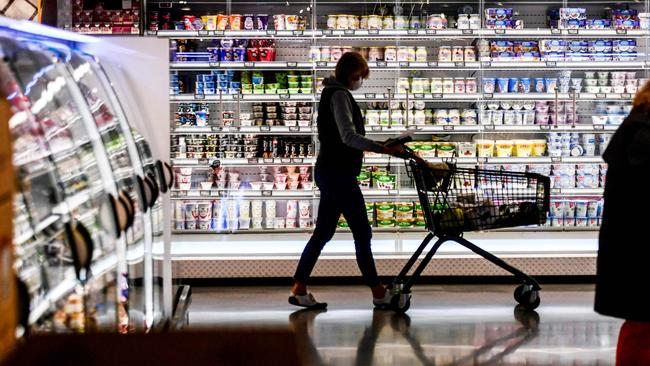
Many wealthier Australians don’t even look at the prices of the groceries they buy. And they shop at more expensive independents like Harris Farm anyway. But if they do the shopping themselves, they’ll walk up and down the aisles, picking up whatever they want and need without a second thought about the price or whether the item is on sale.
And we’ve heard it all before. On January 22, 2007, the Assistant Treasurer and Minister for Competition Policy and Consumer Affairs, Chris Bowen, asked the ACCC to hold a public inquiry into the competitiveness of retail prices for standard groceries. The report was handed down in July 2008, and yet here we are again – 17 years later with more than one inquiry running – the Fels inquiry and a separate fresh inquiry looming from the ACCC.
Price gouging in fresh food has serious direct and indirect economic consequences as well as consequences for our national health. Grocery spending is a key cost of living issue and, therefore, an economic one. Moreover, supermarkets and grocery stores sales in Australia amounted to over $135bn in 2023, with market concentration the highest in the world.
The top four companies generate more than 70 per cent of industry revenue according to IBIS World.
If prices for fresh food are unacceptable to a broad cross-section of Australians, the consequences for national health are dire, leading to significant ongoing government-funded community health support.
Examples of questionable pricing are easy to find and we all have them. Take macadamias. Tree plantings have exploded over the past seven years due to formerly high prices and attractive profit margins. Unfortunately, these large volumes have now combined with a downturn in demand, increased global supply and intensified price competition in the export market to force farmgate prices down, with many macadamia farmers concerned for their livelihoods.
At the farm gate, from a record high in 2020 of $6.20/kg (admittedly including shells which have weight but aren’t consumed), prices fell to less than $2/kg. Sure, there’s processing, packaging, transport and storage to contend with, and the cost of some of these overheads will have risen, but will they have offset the fall of nearly 70 per cent in the price of the raw ingredient? Take a look at a bag of macadamias at the supermarket, and the price hasn’t fallen at all. Woolies is charging around $38.50/kg!
The higher margins reported by the supermarkets and their record profits tell you what’s really been happening. If you are a regular buyer of Haighs chocolate-coated macadamias, their 440gm bag was less than $23 a year or so ago. Today, that bag is closer to $30. That’s $68/kg and represents 30 per cent inflation even though the featured macadamia has fallen 70 per cent. Granted, cocoa futures prices have doubled in the last 12 months but even if cocoa constituted 50 per cent of the product and macadamia the other 50 per cent. Still, a 70 per cent fall in the price of the nut and a 100 per cent increase in the cocoa would equate to a 15 per cent price rise.
There’s a phenomenon known in many industries as “rockets and feathers”. Cost increases are passed on quickly, and prices rise like a rocket. Cost savings to businesses, however, are passed on much more slowly, if at all. Prices consequently fall like feathers.
Builders similarly explain how they responds to project variations. When something is added, it’s “up by thousands”, and when something is detracted, it is “down by hundreds”.
Consumers are right to conclude they’re being taken for the right royal ride.
Last year, lamb prices plunged 50 per cent. According to Meat & Livestock Australia, the Trade Lamb Indicator fell from 800c/kg this time last year to just above 400c in September. But did the price of your lamb cutlets halve at the supermarket? They certainly didn’t at my local butcher, who cheerfully charges $79/kg.
I can share another example of price gouging: by a local butcher – who receives the same lamb from the same delivery truck on the same day as another butcher in the next suburb up the road – who charges its customers double the price for the same lamb as the butcher up the road. I refuse to shop there, having labelled them smiling assassins. I am sure they think their customers are all wealthy idiots.
Price gouging clearly isn’t limited to the supermarkets.
In the early 1990s, TNT, Ansett Freight Express, and Mayne Nickless were fined for collaborating to manipulate prices and divide the nation’s express freight market.
Bad behaviour is a given, which means leaving market forces and competition to set prices reflects a naive faith in business realities.
Without regulation, businesses will charge whatever it can get away with. If the big supermarkets are overcharging, it sets the stage and creates a vacuum for smaller retailers to do likewise. And for consumers, there is no escape. Tighter regulation of all players and even the break-up of duopolies are not unreasonable suggestions to explore.
Woolworth’s share price is unchanged from 2½ years ago, and Coles’ share price is unchanged from 3½ years ago. I’d suggest the next two or three years might be equally unrewarding.
Roger Montgomery is founder and chief investment officer at Montgomery Investment Management




Earlier this week Professor Allan Fels handed in his ‘price gouging’ inquiry to union leaders with no less than 35 recommendations.